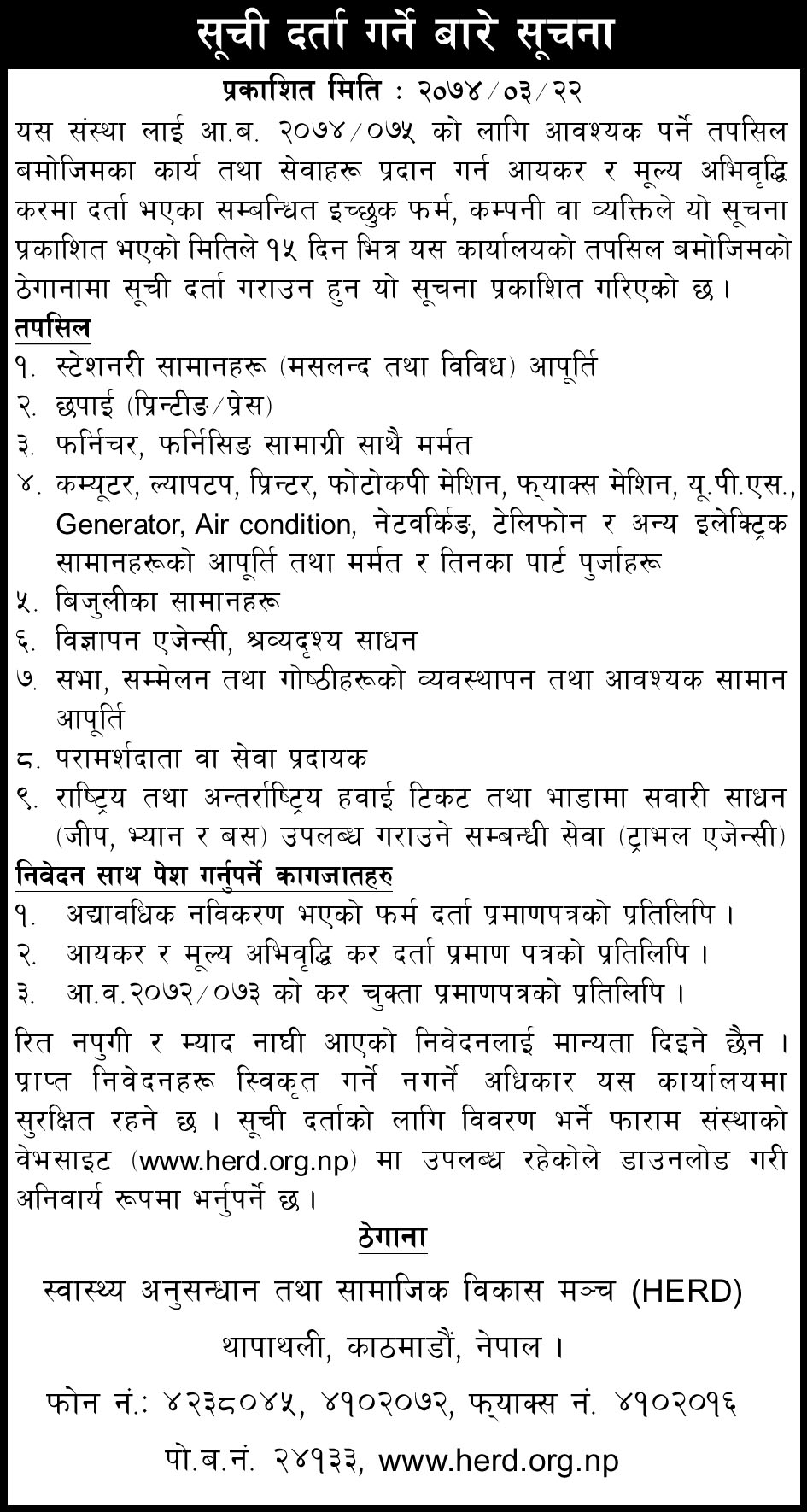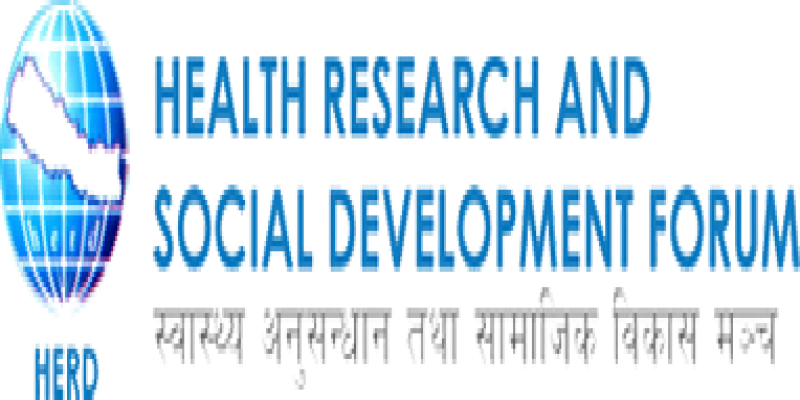
Message from Brazil on World TB Day 2014
2014-03-28 -- HERD
Social Protection and Participation in the fight against TB: Governments policies in theory whilepeople are losing their lives!
Jair Brandão de Moura Filho*
“Reach the 3 million”who are not in treatment is the Global Campaign of the World Health Organization and Stop TB Partnership, on 24 March 2014. The current global efforts to diagnose, treat and cure are not enough. One third out of the nine million people with TB are "lost or missing" from the health systems each year worldwide, many living in the poorest communities in the world, including in our country.
In Brazil, despite all improvements, we are no better than other countries when it comes to support and social participation of people affected by TB and Civil Society Organizations. Importantly, we have an excellent regulatory health framework, the Unified Health System, which by the Law 8.142/80 ensures the participation of civil society in the development of public health policies. But the practice is different from theory and in reality,the full participation of society and people affected by TB is not always ensured instates and municipalities of the country. We understand that to face a social disease like TB, society and affected communities’ perspective play a key role when elaborating public policies,therefore accessing technical and financial support from governments to develop community action to fight TB is essential. The lack of community participation elaborating State and MunicipalTB Plans is a national reality. It is difficult to point out a plan that was built in partnership with thesociety. An example of this neglect is the state of Pernambuco, which ranks third in Brazil in TB incidence and second in TB mortality. Among the country’s capitals, Recife ranks fourth in TB incidence and first in TB mortality, which is a huge concern.
Both Pernambucoand Recife are examples of the lack of CSOs integration in policy development. Local governments do not support or finance Community actions on TB, they do not empower people affected by TB and they haveno strategies for including affected people in social programs and actions. This is also the reality in five other municipalities in the state with the highest TB incidence and mortality rates as the case of JaboatãoGuararapes; Cabo de Santo Agostinho, Olinda, and PaulistaCamaragibe. In addition,in these municipalities local TB programmes are inexistent. If this is a reality in some of the most populated cities in the state, imagine the other 179 municipalities! We request immediate actionsfrom local governments.
This fact only reinforces that governments are addressing to the TB problem,partially, in theory. In practice, CSOs are working in the TB fight, even with all the difficulties faced, especially by Community Based Organizations.
At last, despite the breakthroughs in the country, many challenges still need to be addressedin order to eliminate TB as a public health problem. Improving and studyingepidemiological indicators is not enough, but it is important to also consider the social determinants of TB.
The TB affected people often live in poor communities without the minimal basic sanitation structure and very little or no access to public health and social services, which are key to successfully complete treatment and achieve cure. The medicinesare very important and accessing TB drugs is a strategy to lower treatment default and increase cure rate. Taking medications with an empty stomach is a challenge, and often people affected by TB do not have anything to eat. Items other than medicine, such as food andtransportation are essential for treatment conclusion.
We know that food and transportation support is the Social Servicesresponsibility, but regardless of which area is responsible, governments should have the response. They are largely responsible for the lives lost due to TB. There is still a gap in intersectorial dialogue between public policies in states and municipalities. Social participation should take partin the development of socialpublicpolicies. These policies should be respected and encouraged, and not exist only in theory.
The partnership with social movements, the participation of TB affectedpeople and the articulation with other sectors, particularly with social services, justice and institutions promoting human rights, racial equality, combating abuse of legal and illegaldrugs, in addition to articulationswith the Legislative, to enable projects that benefit people affected by TB and their families, with social support and social inclusion programs, and facilitate access to health services are essential elements. These are fundamental steps for more concrete results in the medium and long term.
TB cure is only achievedconsidering medicine access? Considering integral care for the patient is also part of the prevention, treatment, care, support and healing? Think about it!
In this World TB Day we call upon support for all,ensuring and recognizing social protection in actions against TB in Pernambuco, in Brazil and worldwide. "Let's stop TB, not people's lives".
Read more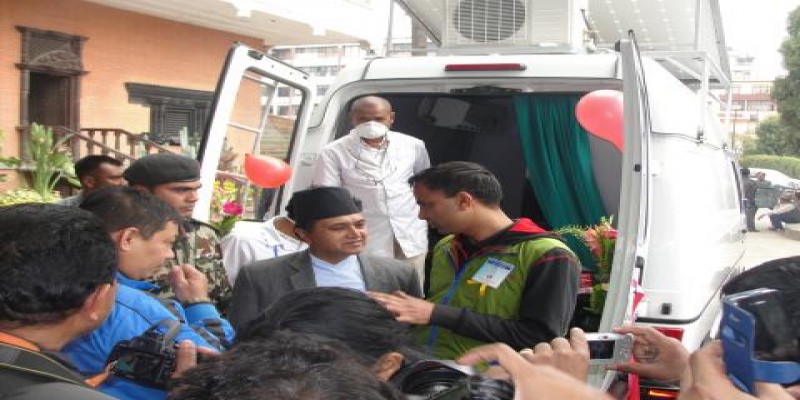
World TB Day 2014 Celebrated !
2014-03-25 -- HERD
Dr. Sushil Baral, Executive Director, briefing to Honourable Minister Mr. Khagaraj Adhikari about the TB Diagnostic Van
With the global slogan for this year, "Reach the three million, a TB test, treatment and cure for all", various events were organized throughout Nepal on the occasion of World TB Day 2014. The country slogan for this year is "Reach the missing 10,000. Test for TB. Treat All. Cure All."
At the capital, Kathmandu, mass rallies were organized by government/non-government health partners as well as medical and public health students.
The highlight of the event was inauguration of the TB diagnostic vans by Honourable Minister for Health and Population, Mr. Khagaraj Adhikari. Mr. Adhikari said, "This is not just an event, this is our commitment towards curing TB. The government has provided free and quality drugs nationwide. We have the right to getting treatment of TB. TB is a priority programme of the government and Nepal is ready to take on cure and treatment of TB with the innovative practice of using diagnostic vans, the case finding, diagnosis and treatment of TB among unreached communities."
The diagnostic vans are well equipped with fluorescent microscope and Gene Xpert technology. The vans are being mobilised by HERD for implementing the TB Reach project in 22 districts and 29 municipalities targeting urban slum dwellers, prisoners, factory workers, migrant population, people living with HIV/AIDS, household contacts of TB patients and diabetic patients.
HERD had also organized a chest camp for Manohara slum dwellers on March 22 on the occasion of the World TB Day 2014.
Various national media agencies have covered the event. Here are the links to major news/stories:
The Himalayan Times
http://www.thehimalayantimes.com/fullNews.php?headline=World+TB+Day+observed&NewsID=409721
The Kathmandu Post
http://www.ekantipur.com/2014/03/25/capital/tuberculosis-care-set-to-go-mobile/387217.html
Kantipur
http://epaper.ekantipur.com/epaperhome.aspx?issue=2532014
Nagarik
http://nagarikplus.nagariknews.com/component/flippingbook/book/1729-naga...
Nepalpati
http://nepalpati.com/tb-preventation
http://nepalpati.com/tuberculosis-health
http://nepalpati.com/chest-test
Read more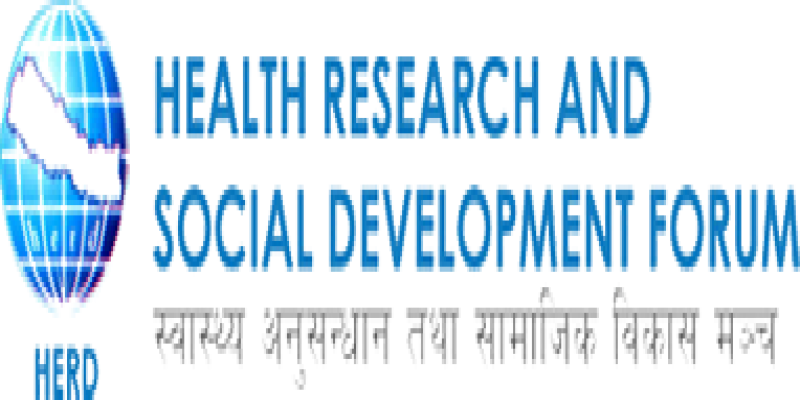
Qualitative Research: Data Management and Analysis Workshop
2014-02-05 -- HERD
Health Research and Social Development Forum (HERD) and the University of Edinburgh organized a 7-day practical workshop on qualitative data analysis from 29 December 2013 to 5 January 2014 in Godavari, Lalitpur. This workshop was designed to complement and build on the workshop on qualitative research organised in December 2012. Its purpose was to offer an opportunity to the participants to reflect on their data collection experiences and engage in analysis of data in a supporting and learning environment. The workshop involved various practical exercises to help the participants in data management, coding, to generate themes and engage in the overall process of interpretation and data analysis. Overall, the workshop aimed to enhance practical skills in the analysis of qualitative research. A total of 19 participants from a number of social research organisations from Kathmandu attended the workshop.
Read more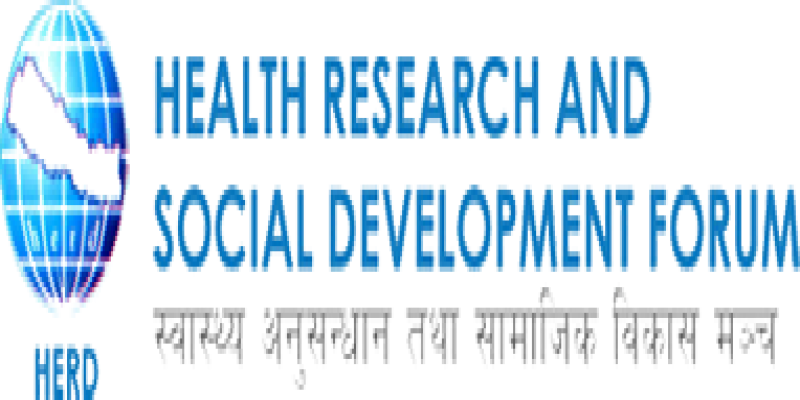
Media Workshop on Urban Health
2013-12-26 -- HERD
HERD conducted three Media Workshops on Urban Health from December 12 to 14, 2013 in Kathmandu, December 16 to 18, 2013 in Pokhara and January 11 to 13, 2014 in Biratnagar. The participants of the workshop were journalists working in print media, radio and television. A total of 52 journalists (13 in Kathmandu, 19 in Pokhara and 20 in Biratnagar) participated in the workshop.
The workshop focused on highlighting the necessity of improved coverage of urban health issues in the media. HERD had conducted a baseline study of media monitoring of 10 publications (8 dailies and 2 weeklies) before the workshop. The study findings were presented during the workshop. During the workshop, the journalists were also taken for a field visit to the slums to have field based experience of health issues of slum dwellers.
These workshops were conducted with the support of COMDIS - HSD and Primary Health Care Revitalization Division of the Ministry of Health and Population.
Read more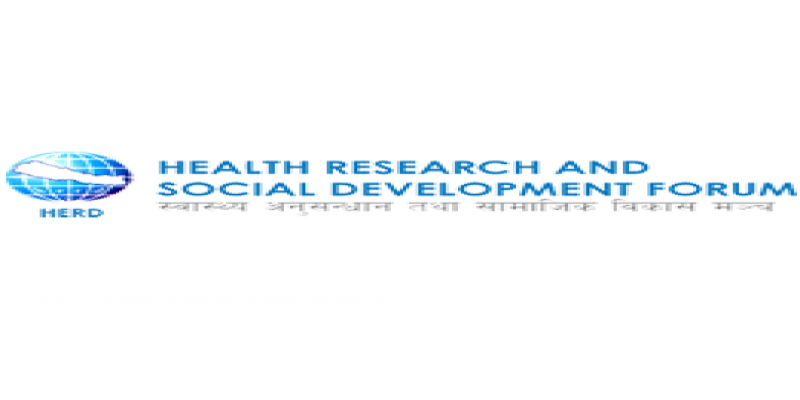
असुरक्षित गर्भपतन बढ्यो
2015-09-26 -- HERD
The article has shown the increasing number of women seeking abortion facilities in Tehrathum, which has been made legal by the government. It further highlights the increasing number of unmarried women opting unsafe abortions methods due to various social factors.
Read full article: http://www.enayapatrika.com/2015/09/26704
Read more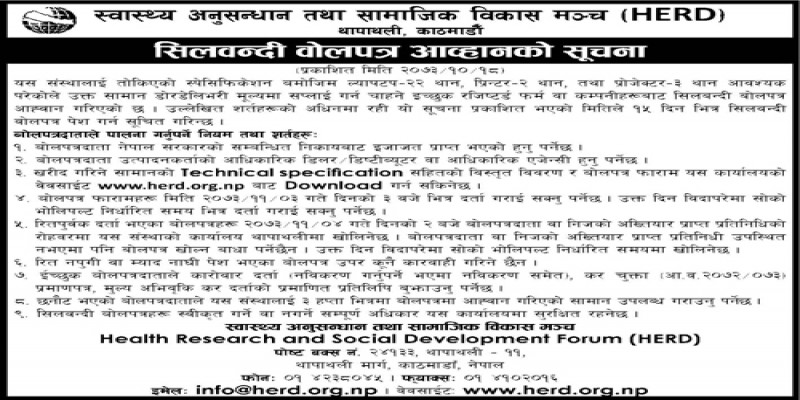
सिलवन्दी वोलपत्र आह्वानको सूचना
2017-01-31 -- HERD
खरीद गरिने सामानको Technical specification सहितको विस्तृत विवरण र बोलपत्र फाराम Download गर्न यहाँ click गर्नु होला
Read more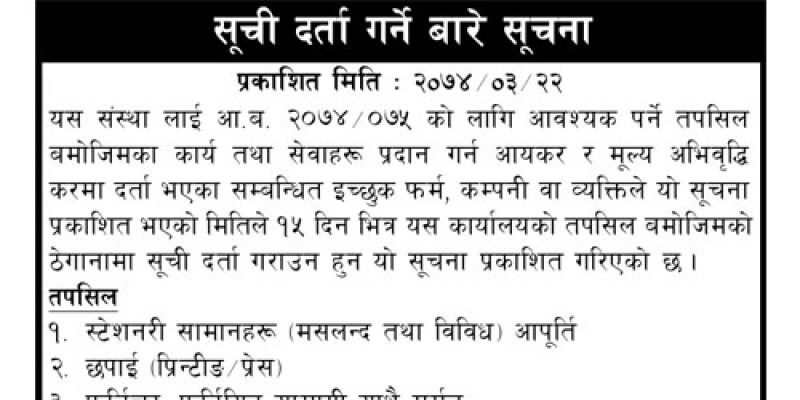
सुची दर्ता गर्ने बारे सूचना
2017-07-06 -- HERD
सुची दर्ताको लागि बिवरण भर्ने फारम Download गर्न यहाँ Click गर्नु होला |
